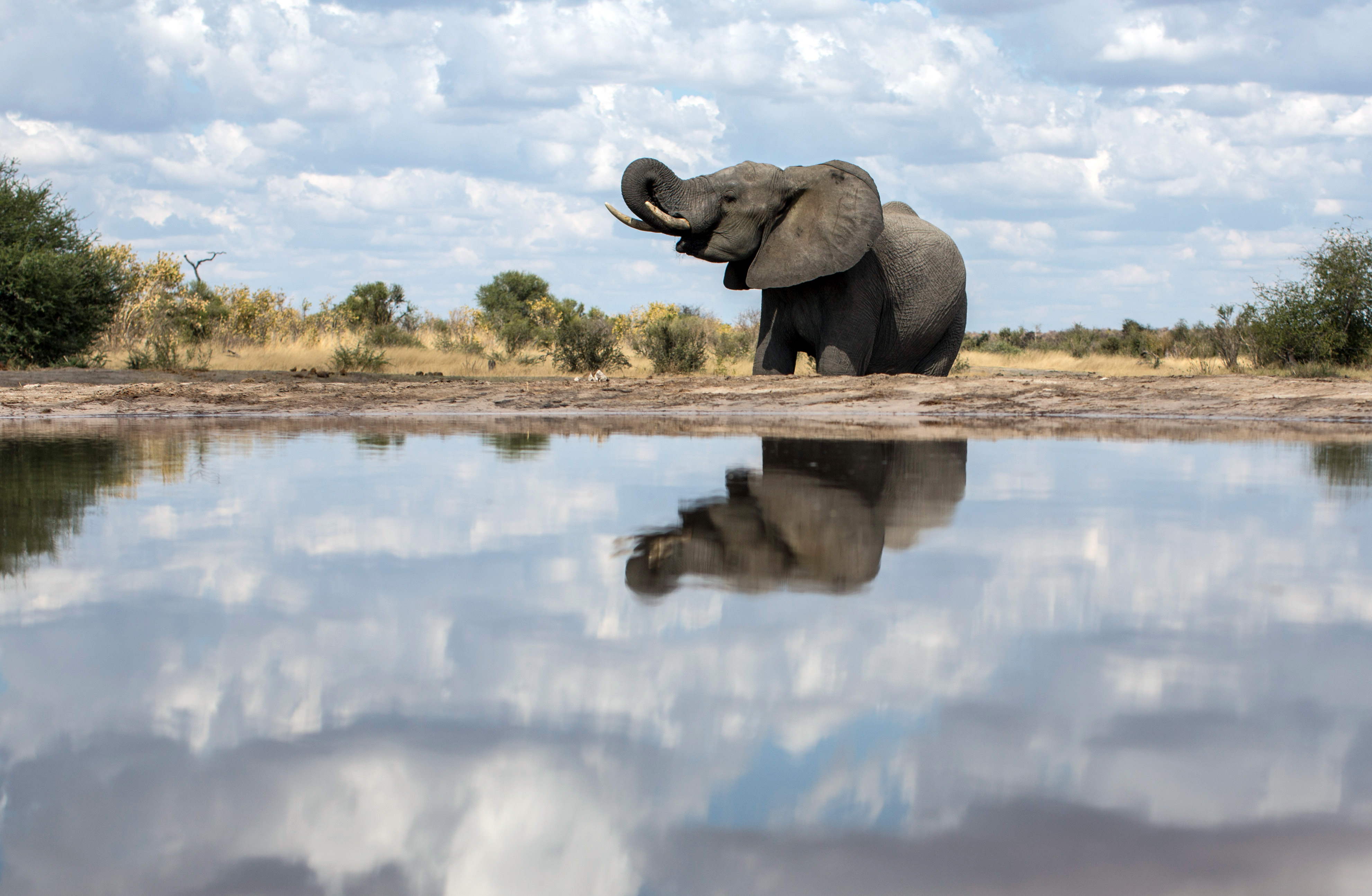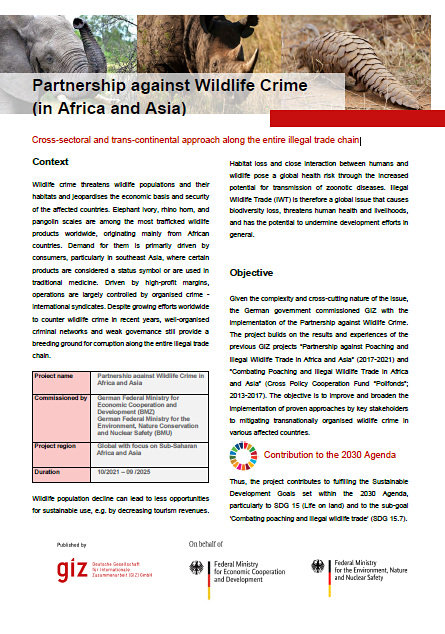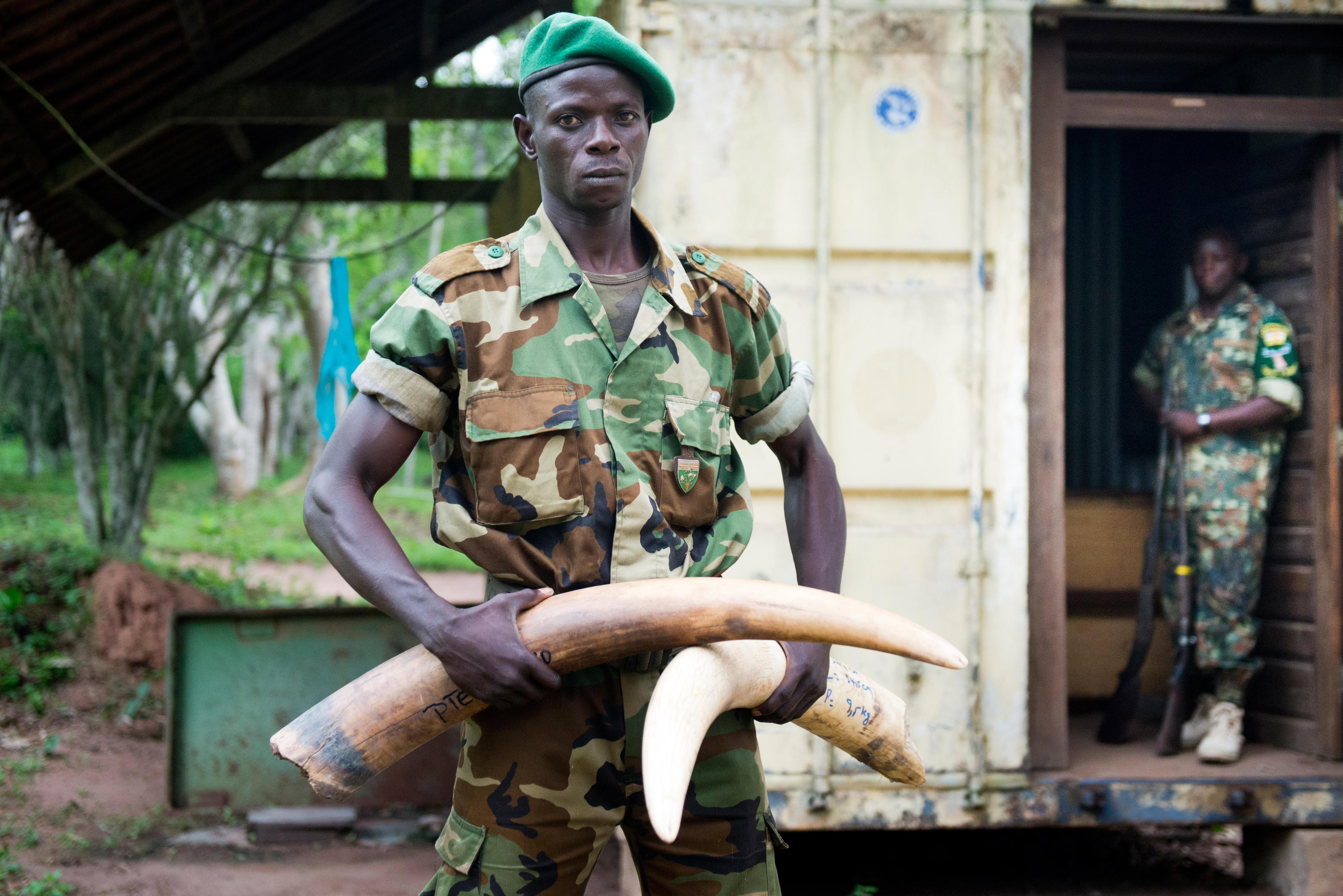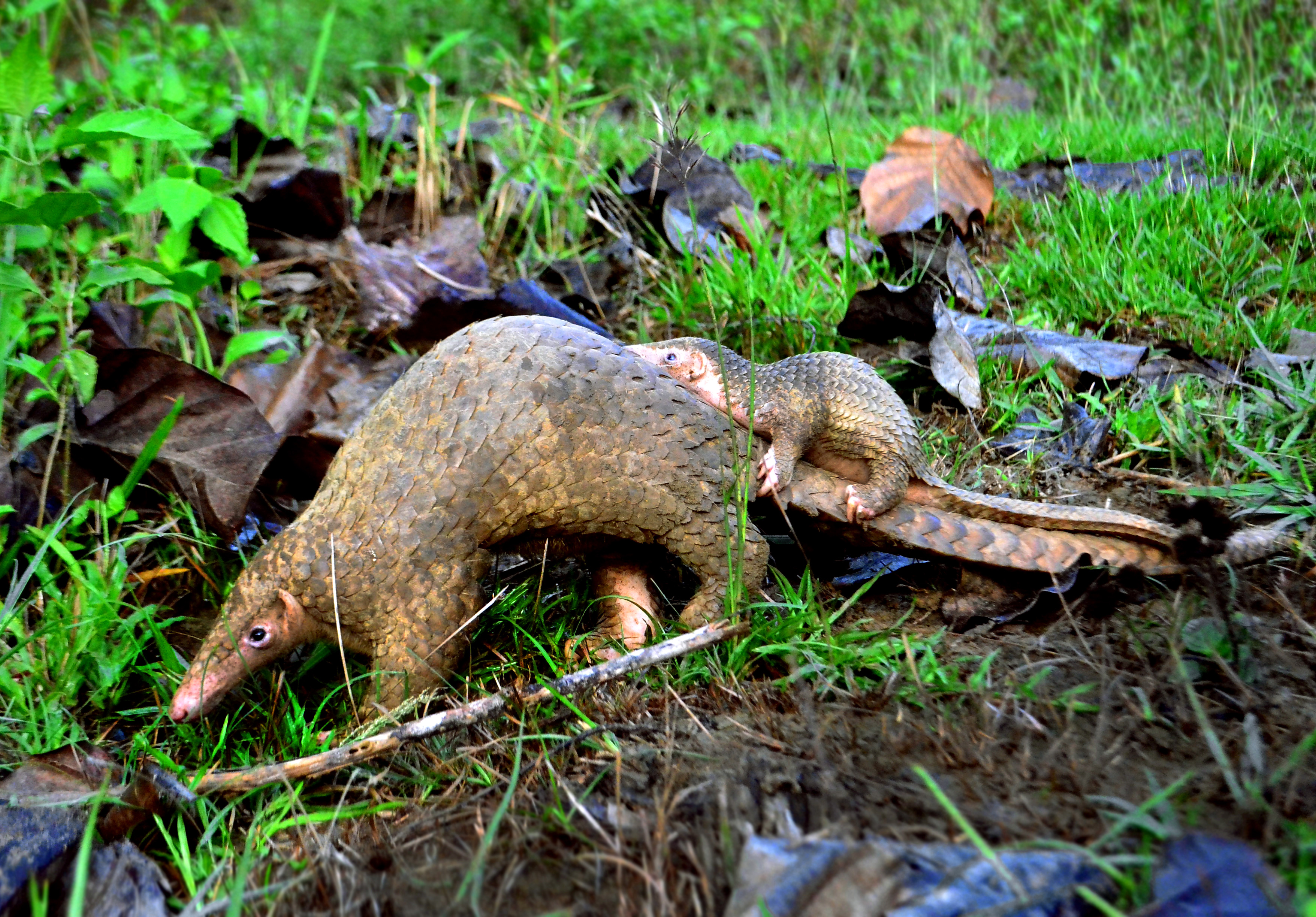Elephant at a waterhole in Khaudum National Park in Namibia
Copyright© Thomas Imo/photothek.net
Poaching and biodiversity Combating poaching and the illegal trade in wildlife products
Illegal trading most commonly involves ivory, rhinoceros horn and pangolin scales, with the products coming mainly from Africa. In countries such as Cameroon, Mozambique, Angola and Tanzania, so many animals are being poached that the populations can no longer regenerate naturally. As a result, rhinoceros in particular are at risk of extinction. The main destination of products of the illegal wildlife trade is Asia, where particular animal products are sought after for use in traditional medicine, for consumption and as a status symbol.
The coronavirus pandemic has exacerbated the situation: because protected areas were forced to close, tourists stayed away and the reserves were thus deprived of an important source of income for conservation. In addition, the still very limited opening up makes it easier for poachers to remain undetected.
German activities
Effective suppression of poaching and the illegal trade in wildlife products requires a coordinated approach by policymakers, civil society and the private sector across continents and national borders.
Germany is playing a leading part in this and is working with numerous partner countries and regions. The Federal Ministry for Economic Cooperation and Development (BMZ) promotes projects that improve species protection in the countries of origin, curb the demand for illegal wildlife products or create alternative sources of income for the local population, such as through sustainable tourism.
Current German projects
A soldier of the Eco-Guards in the Dzanga National Park in the tri-border region of Congo, Cameroon and Central African Republic shows ivory tusks of forest elephants confiscated from poachers.
In the Partnership against Poaching and Illegal Wildlife Trade in Africa and Asia, the BMZ and the Federal Environment Ministry are pursuing an innovative approach along the entire illegal wildlife product trade chain – from the countries of origin and transit to the consumer countries. As part of its activities the initiative is supporting the training of more than 1,000 employees of the police services, customs authorities and judicial bodies in over 20 countries in Africa and Asia. To curb illegal fishing, the BMZ supports national supervisory authorities in partner countries and encourages implementation of the United Nations Agreement on Port State Measures.
The programme to reduce the demand for ivory in China is to be incorporated into this partnership. This is a programme that focuses mainly on measures – such as online campaigns and the targeted deletion of advertisements for wildlife products – that are designed to reduce interest in wildlife products. Awareness-raising campaigns on the Internet have reached around 18 million potential consumers in China.
Suppressing zoonoses
One of the risks of the wildlife trade is that trade will cause the spread of infectious diseases that can be transmitted (in either direction) between animals and humans; these are known as zoonoses. The Covid-19 pandemic has provided a vivid illustration of the huge risk posed by these infectious diseases. The BMZ therefore supports the new International Alliance against Health Risks in Wildlife Trade. The guiding principle is the One Health approach, which takes a holistic view of the complex interactions between people, animals and the environment.
Background The scale of poaching
A Philippine pangolin and its young. The animals are hunted intensively, and their skin and scales are used in traditional Chinese medicine. The species is considered critically endangered.
More than 800 rhinoceros and between 10,000 and 15,000 elephants were poached in Africa in 2018 alone. As a result, populations on the African continent have shrunk to around 23,000 rhinoceros and 350,000 elephants. The illegal trade in wildlife products is largely controlled by international criminal organisations.
This is not only endangering animal species that are already at risk of extinction but also affecting the livelihoods and security of local people. It is likely that some of the vast profits from the illegal transactions are used to finance militias and rebel groups, thereby helping to inflame regional conflicts.
Although the governments concerned and the international community have responded to these challenges, the efforts and resources are in many cases insufficient to get the problem permanently under control. A shift in trade in also apparent: since China introduced a trade ban on ivory in 2017, purchases of ivory within the country have indeed declined, but more is being bought in the course of foreign travel. It is also evident that Vietnam has become a new collection and transit point for illegal supplies.



